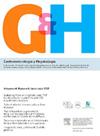Documento de posicionamiento del Grupo Español de Trabajo en Enfermedad de Crohn y Colitis Ulcerosa (GETECCU) para el manejo de la enfermedad fistulizante no perianal en la enfermedad de Crohn
IF 1.9
4区 医学
Q3 GASTROENTEROLOGY & HEPATOLOGY
引用次数: 0
Abstract
Crohn's disease consists on a complex condition where, despite most patients initially present with an inflammatory behavior, a significant proportion develop complicated lesions such as strictures, fistulas, abscesses, or even perforations. These lesions progressively increase over time and are associated with a higher risk of surgery and hospitalization. Despite significant advances in their management after the introduction of biological therapies, particularly anti-TNF agents, these complications continue to pose challenges for the multiple professionals involved in their care.
Fistulas that do not involve the perianal region (entero-enteric, entero-urinary, or entero-cutaneous) require a multidisciplinary strategy that combines medical, interventional, and surgical approaches. Their treatment ranges from general supportive measures to the use of antibiotics or, frequently, advanced therapies. Nevertheless, in cases of certain septic complications or those refractory to medical treatment, percutaneous drainage or surgical intervention remains essential.
Although these lesions have a significant impact, evidence regarding the best strategies in this context, as well as the efficacy and safety of different therapies in these patients, remains limited. This is highlighted by the absence of specific recommendations in current guidelines. The objective of this document is to provide a comprehensive overview of non-perianal fistulizing Crohn's disease, addressing its epidemiological, clinical, and therapeutic aspects from a multidisciplinary perspective.
西班牙克罗恩病和溃疡性结肠炎工作组(GETECCU)关于非肛周瘘管性克罗恩病管理的立场文件。
克罗恩病是一种复杂的疾病,尽管大多数患者最初表现为炎症行为,但很大一部分患者会出现复杂的病变,如狭窄、瘘管、脓肿甚至穿孔。随着时间的推移,这些病变逐渐增加,并与手术和住院的高风险相关。尽管引入生物疗法(特别是抗肿瘤坏死因子药物)后,这些并发症的治疗取得了重大进展,但这些并发症仍对参与治疗的多名专业人员构成挑战。不涉及肛周区域(肠-肠、肠-尿或肠-皮)的瘘管需要多学科的策略,结合医学、介入和手术方法。他们的治疗范围从一般的支持措施到使用抗生素,或经常使用先进疗法。然而,在某些脓毒性并发症或药物治疗难治性的情况下,经皮引流或手术干预仍然是必不可少的。尽管这些病变具有显著的影响,但关于这种情况下的最佳策略以及不同治疗方法对这些患者的有效性和安全性的证据仍然有限。目前的指导方针中缺乏具体的建议,突出了这一点。本文的目的是提供非肛周瘘管性克罗恩病的全面概述,从多学科角度解决其流行病学,临床和治疗方面的问题。
本文章由计算机程序翻译,如有差异,请以英文原文为准。
求助全文
约1分钟内获得全文
求助全文
来源期刊

Gastroenterologia y hepatologia
GASTROENTEROLOGY & HEPATOLOGY-
CiteScore
1.50
自引率
10.50%
发文量
147
审稿时长
48 days
期刊介绍:
Gastroenterology and Hepatology is the first journal to cover the latest advances in pathology of the gastrointestinal tract, liver, pancreas, and bile ducts, making it an indispensable tool for gastroenterologists, hepatologists, internists and general practitioners.
 求助内容:
求助内容: 应助结果提醒方式:
应助结果提醒方式:


